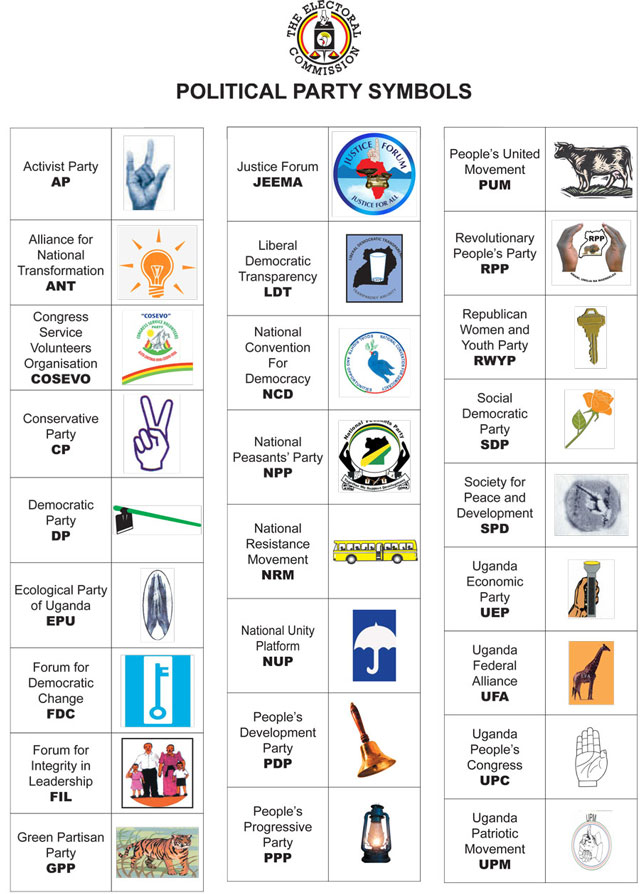
The internal party deficiencies and external, legal,constitutional framework they should address to be effective
COMMENT | DEUS MUKALAZI MUBIRU | In Uganda, multi-party democracy was opened up after over two decades of ban. This move towards pluralism was a first step towards a competitive party system in Uganda. Today, a number of challenges remain which are restricting parties’ potential to perform effectively and these can be divided into two broad categories.
First, there are the restrictions imposed by the external, legal and constitutional framework within which the parties operate. This uneven playing field is attributed to three main issues. First, parties complain of the limited funding available to them as a result of the Political Parties Organizations Act (PPOA). The PPOA sets strict limits on foreign party funding, and although it was amended to include public funding to parties in 2010, no funds have been released to date. This has led parties to see the PPOA as an NRM strategy geared to their containment and control not least because, as they claim it has access to state resources. Second, the mistrust towards the Electoral Commission (EC) has discredited the electoral process as a whole in the country. The opposition parties regard the EC as an NRM sponsored bulwark of the status quo and its composition and procedures continue to be highly contentious issues, particularly in the run up to elections. Third, parties complain of the repression opposition activists and party members endure on the streets.
Second, there are the internal party deficiencies, which further limit parties’ scope for action within this wider restrictive framework. Political parties are poorly institutionalised and remain disorganised, internally divided and with limited access to resources which prevents them from improving their capacities as credible and representative governing entities. Party prospects have been further compromised by the internal factions and leadership disputes, which characterise much of Ugandan party politics. The NRM, meanwhile, has its own share of problems. It is far from monolithic and suffers from some of the same issues in party organisation and capacity as the opposition parties. The ruling party essentially functions on a part time basis, in the run up to elections when conventional party structures need to be reactivated to facilitate electoral campaigning. The rest of the time, the party exists as a diffuse network of individuals, held together by a deeply entrenched patronage system.
Both sets of factors mean that the party system is characterised by mistrust and antagonism between the NRM and the opposition parties on the one hand and, for different reasons, among opposition parties on the other. While competitive politics does, by definition, set parties against each other, the mistrust that pervades inter-party relations in Uganda is particularly acute, and may threaten the democratic process as a whole.
Uganda’s multi-party politics suffers domination of one party, the ruling party, that makes it more less a one-party state. Opposition political parties in Uganda are faced with the huge task of choosing whether to “cooperate” and be co-opted or “confront” the ruling party. For instance, the Uganda People’s Congress (UPC) has chosen to “cooperate” and be co-opted by the National Resistance Movement (NRM), with their members being appointed to serve in the NRM led cabinet. President Museveni has also co-opted individual members from opposition parties even where there is no formal agreement at the party level and this weakens the multi-party arrangement in Uganda.
The relationship between opposition political parties and individual opposition politicians hasn’t been smooth as well. There have been accusations and counter accusations of “being in bed with the state” and talk of “who is genuine opposition” has surfaced. These accusations of genuine opposition exist at the level of political parties but also within parties.
The emergency of the National Unity Platform (NUP) seems to have rattled the status quo in the opposition rankings and there has been a silent cold war between the two leading opposition parties, the FDC and NUP. This cold war came to the fore in the recent past when NUP’s request for a meeting with FDC was turned down and the Speakership race where the FDC candidate, Ssemuju Nganda accused NUP of supporting an NRM leaning independent candidate, Rebecca Kadaga and left him in the cold. The same race exposed FDC since the party candidate managed only 15 votes yet the party has 32 members.
Political parties in Uganda suffer from low voter confidence. Although during elections, candidates contest on political party tickets and there is a fair voter turnout, these high voter turnout figures should not be strictly interpreted as an indicator of voter confidence in political parties per se. Rather, they indicate that voters trust the electoral process as a means of reconfiguring the way they are governed, for the better. Political parties seem to be merely a necessary tool for getting there that can be safely discarded once their use expires. Indeed, with few exceptions, voter confidence in political parties is not directed to the institution as such. It is based on the personality of the leadership of the party and can be transferred to any party this leadership may choose. The failure by political parties in Uganda to go beyond personalities is therefore a big concern.
****
Deus Mukalazi Mubiru is Research Associate, Great Lakes Institute for Strategic Studies (GLISS)
 The Independent Uganda: You get the Truth we Pay the Price
The Independent Uganda: You get the Truth we Pay the Price




You have talked about so much on science teachers,,,wt about art teacher’s…….Ido appreciate alot for our first lady for your concern..
That’s was some times good and sometimes bad